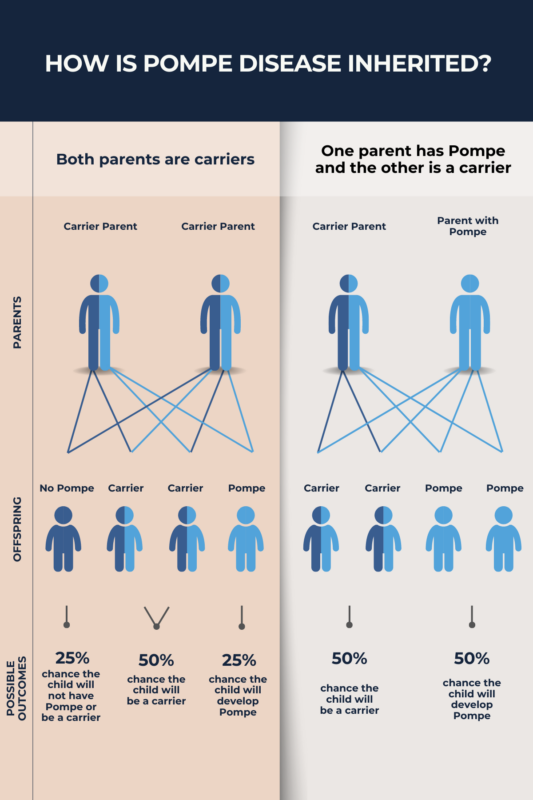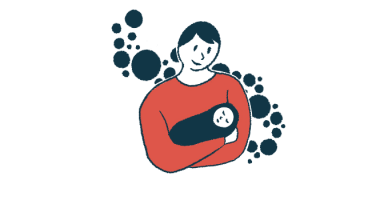FAQs about Pompe inheritance
Pompe disease is a genetic disorder caused by mutations inherited from a person’s biological parents. People with a history of Pompe in their biological families are most likely to carry a disease-causing mutation that they can pass on to their offspring if they choose to have biological children. Genetic testing and counseling can identify Pompe disease carriers and inform individuals about their risk of passing disease-causing mutations to their children.
Although the mutations that cause Pompe disease are present at birth, some people with late-onset forms of Pompe will not start to experience any symptoms of the disease until adulthood.
A person will only develop overt symptoms of Pompe disease if they carry two mutated copies of the GAA gene. Someone who is a Pompe disease carrier has one mutated copy of the GAA gene, and a second healthy copy of the gene. By definition, carriers do not show overt symptoms of Pompe disease, but they may pass the mutated gene on to their biological children.
If people with Pompe disease choose to have children, they are guaranteed to pass on one mutated copy of the GAA gene to each child. But any children will only develop Pompe disease if they also inherit a second mutated copy of the GAA gene from their other biological parent. If the child inherits a healthy copy of the gene from the other parent, the child would be a carrier for Pompe disease, but would not develop the disease itself.
Newborn screening programs for Pompe disease have been implemented in more than half of states in the U.S., but at present, some U.S. states do not have a Pompe newborn screening program.
Related Articles

 Fact-checked by
Fact-checked by 





